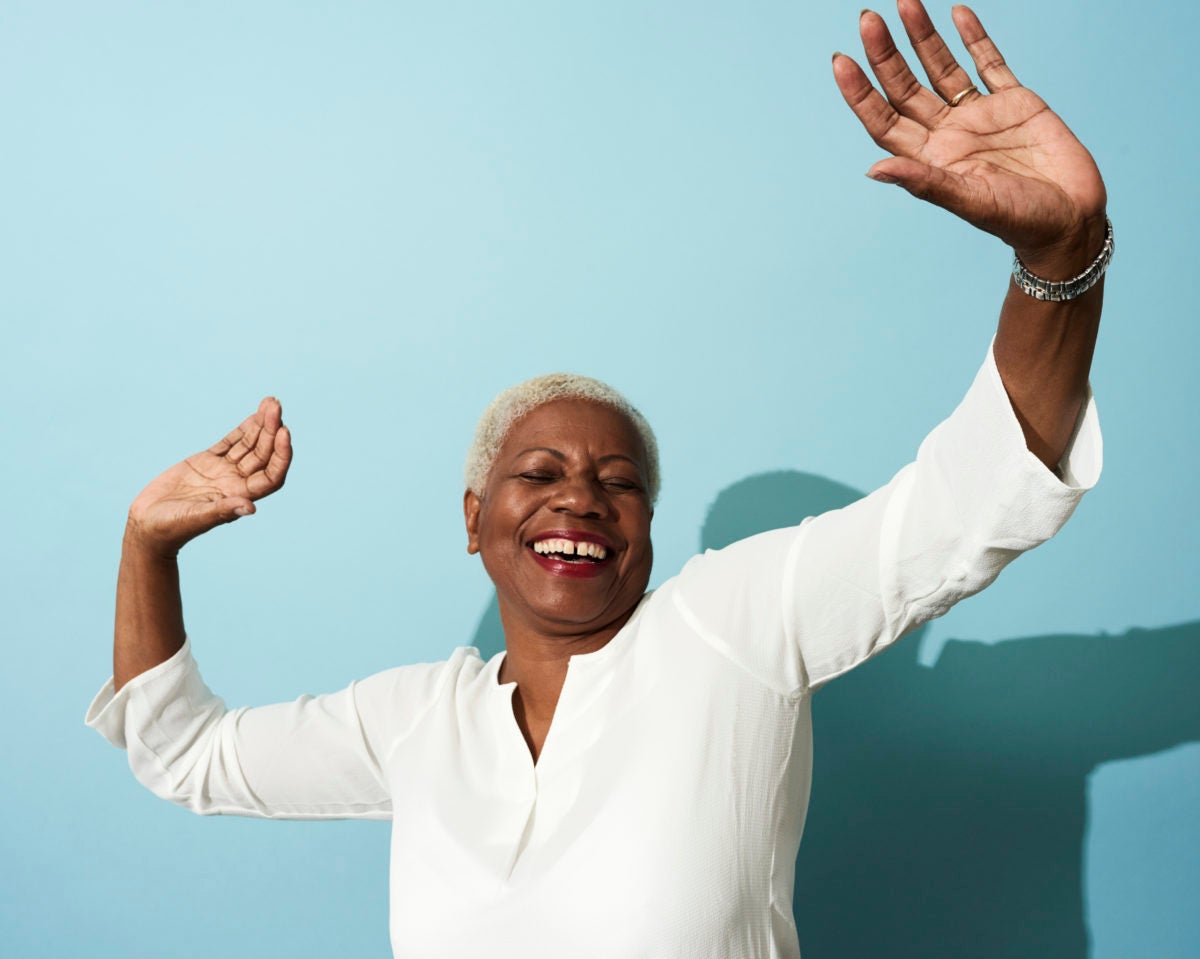
GETTY
BY DAVID J. JOHNS AND KIA DARLING-HAMMOND PHD · APRIL 26, 2019
In 1961, James Baldwin said: “To be a Negro in this country and to be relatively conscious, is to be in a rage almost all the time. So that the first problem is how to control that rage so that it won’t destroy you.” His words still remain true. Finding a way to be okay, even better than okay, while walking through a hostile world is ongoing work when each day reminds us that we live in a cis-hetero-patriarchal, anti-Black world (nod to bell hooks). It’s written into policies and reflected in language, looks, and actions.
Black feminist scholars describe the systems that affirm this racial and social hierarchy as a matrix of domination. Forces of oppression are compounded resulting in a steep cost to those society has othered. Nonetheless, we’re taking this moment to remind our communities, and ourselves, that we can (and must) protect our health–physical, mental, and spiritual.
April is Minority Health Month. So we invite you to be “selfish” and to fill your cup first. Research on thriving and flourishing tells us there are at least six key areas of well-being worth investing in. They include your self, community, sufficiency, pleasure, relief, and purpose.
01
Self
Knowing yourself, accepting yourself, self-love, and self-compassion are building blocks for self-preservation. This world bombards us with the notion that we should be white, thin(ish), rich, “the best,” tough, sexy, straight… It’s a lot. You might have to look online to find fat Black femme fam. You might choose to work with a therapist to unravel how repeated rejection has impacted you. Whatever your path, the journey to self-love is important.
 GETTY
GETTY02
Pleasure
Laughter, satisfaction, bliss, orgasm, delight, and contentment help quiet hardships. People can find joy through everything from completing weekend chores to using a planner, to making love, dancing, kiki-ing with friends or being alone.
 GETTY
GETTY03
Community
We all need support. It is critical to be seen, accepted, desired, and celebrated for who you are as you walk in your truth. The folks who show up for your success help refill your cup and help you stay well. Don’t accept anything less.
 GETTY
GETTY04
Relief
Stress infiltrates our lives in countless ways. Sometimes we don’t even know it’s there. It steals time. Finding ways to reduce stress is part of our fundamental work. Moving around or breathing deeply can help. It can help to talk about it, so consider a therapist. Also, sleep to heal your body and brain. Turn off when you can. Remember relief. You can’t pour from an empty cup.
 GETTY
GETTY05
Purpose
Research on flourishing suggests that activating a sense of purpose can protect against stress and depression. If you’re passionate about something, make it a focus in your life. Notably, research on Black LGBT resilience suggests that social activism is one place we reclaim hope. There are many ways to engage: everything from volunteering at a freedom school to marching to making sandwiches for marchers to disrupting “the academy” with Blaqueer scholarship. Whatever mode you choose, moving purposefully against the status quo can contribute to well-being.
 GETTY
GETTY06
Sufficiency
A key element of thriving is having the resources required to meet your needs. Black precarity--the constant state of un/under employment or financial instability-- is nothing new. It’s as American as guns. Add intersectionality by gender, sexuality, disability, etc. and it gets harder (nod to Crenshaw). In the face of this, self-care as yoga retreats and all-organic food can be beyond reach for many, but self-care can also be regular sleep, a multivitamin, or walking in sunshine. It can be food prepping to save money, taking a hot shower, or watching a feel-good show. You might ask for a work-from-home day once a week. There are many possibilities. Look here, here, and here for more ideas.
 GETTY
GETTY07
Getting Help
We joke about therapy being for white people, like bland food and taxidermy. It seems self-indulgent. It requires time, financial resources, and other privileges many of us don’t have. The forces making it difficult for Black LGBTQ+/SGL people to access quality and affordable housing, employment opportunities, advancement, and essential resources are the reasons we need to find ways to heal, flourish, and thrive. If you decide therapy is something you’d like to explore, consider: The National Queer and Trans Therapists of Color Network, the Therapist Resource Directory or TalkSpace. This April and beyond, take the time to nourish yourself so that you can show up – both for yourself and others. Schedule quality time alone or with friends or supportive family. Seek whatever spiritual, professional, or other help you can benefit from. And please remember that you are necessary. This walk is tough, but you are not alone.
Kia Darling-Hammond, PhD, is associate director of educational programs at Stanford University’s Office of the Vice Provost for Graduate Education. She has more than twenty years’ experience as an administrator, researcher, teacher, consultant, and mentor in education and education-adjacent spaces. Kia’s scholarship explores the circumstances and beliefs that make thriving possible for Black LGBTQ+ and same-gender-loving people. Learn more at LinkedIn.
David J. Johns is the executive director of the National Black Justice Coalition, the nation’s only civil rights organization dedicated to the empowerment of Black lesbian, gay, bisexual, transgender, queer and same gender loving (LGBTQ/SGL) people, including people living with HIV/AIDS. An educator, public intellectual, federal domestic policy expert, and former executive director of the White House Initiative on African American Excellence, David is known for his passion, public policy acumen and fierce advocacy for youth. Follow him on Twitter.
 GETTY
GETTY

0 comments
Leave a comment and show some love!